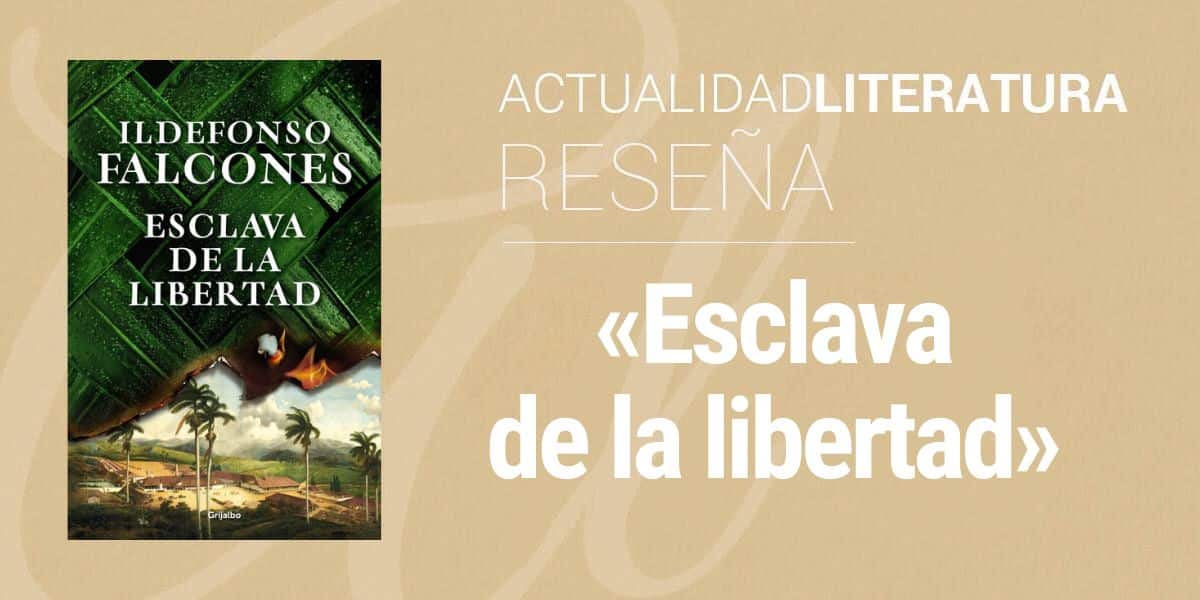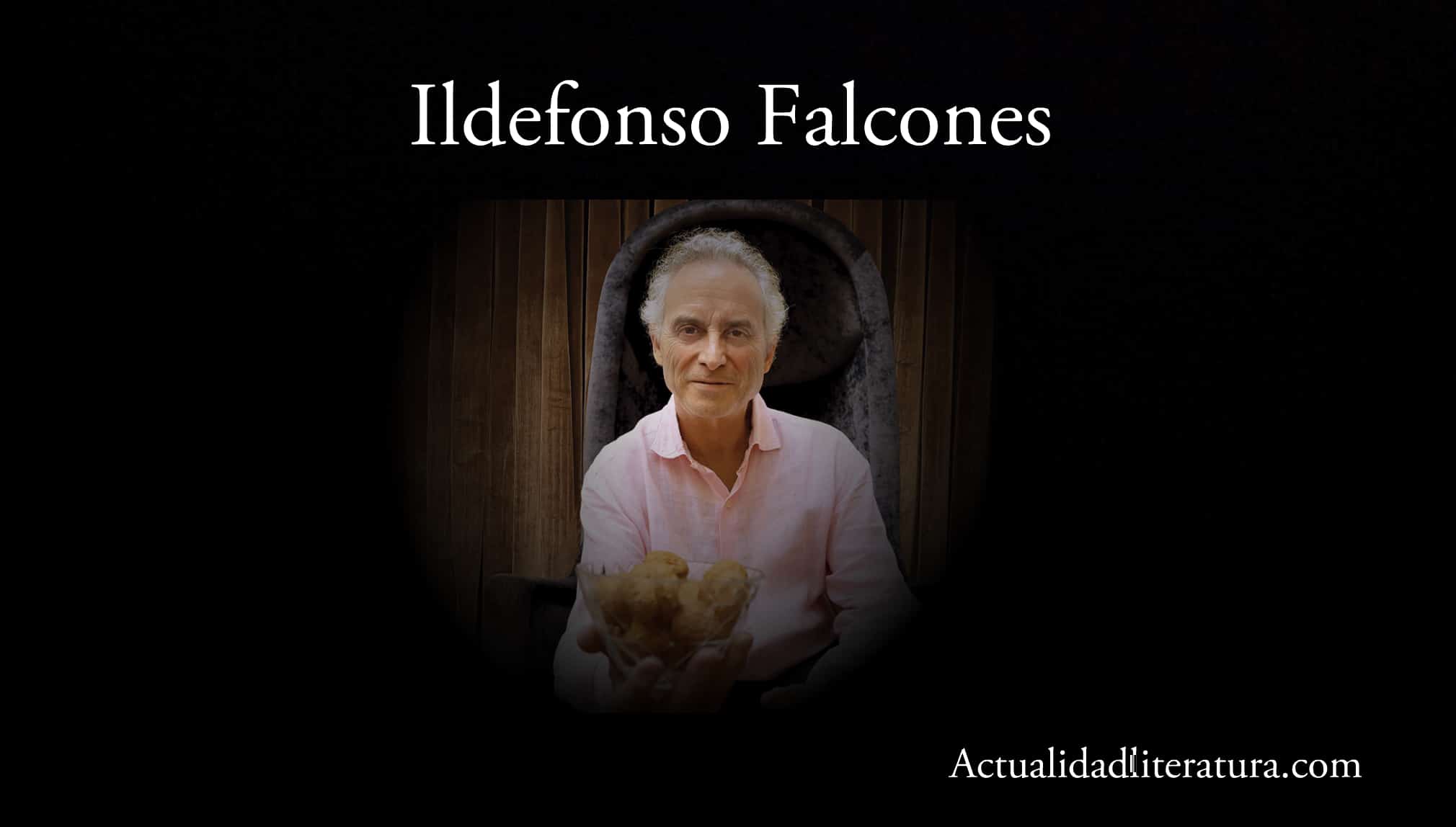
Slave of freedom
Slave of freedom is a historical novel written by the Barcelona author Ildefonso Falcones. This work, which seeks to pay homage to all the strong and courageous women who lived through slavery in colonial Cuba, was published by the Grijalbo publishing house on August 30, 2022. Falcones is known for addressing complex social issues in his literary titles, and this is no exception, since it moves its readers to reflections on the past and the future.
The magic of Slave of freedom resides in the parallelism that is made between the days of yesteryear, the present and the nearest future. In addition to this, it is presented how the systems of justice, ethics and morality, even in the XNUMXst century, have evolved very little, leaving a reduced space for minorities that increasingly struggle to abandon the silence in which they have been plunged by generations.
Synopsis of Slave of freedom
Cuba, mid-XNUMXth century
It might seem that issues like machismo and racism are a thing of several yesterdays. However, both topics are more present than ever in everyday talk, since they are highly relevant in today's society. For this reason, Slave of freedom it feels like a trend.
The novel narrates the events that occurred in two time lines: half of the XNUMXth century in Cuba, and the present in Madrid. the plot of the past tells the story of Kaweka, a young African woman torn from her homeland by slavers.
The first protagonist arrives on a boat with more than seven hundred women and girls. The end of her arrival is nothing short of cruel, since each of them must serve and work in the sugar fields, in addition to fathering more children who, like them, will be slaves. Unfortunately, Kaweka is sent to a hacienda commanded by the millionaire Marquis of Santadoma, a tyrannical man who never treats her as an equal.
The reference to the supernatural as a literary device
Sooner rather than later, Kaweka's companions are going to discover that the young woman has a very special ability: the gift of communicating and being sponsored by Yemayá, the greatest among the female deities of the Yoruba religion —the parallel of the Virgin Mary in the West.
On some occasions, the goddess gives the girl the ability to heal. In addition, he gives her the strength to face her executioners in a fight against injustice, and guide his brothers in it.
The repression suffered by this group is very severe. But, although the slavers dominate their bodies, they are not capable of subduing their souls, their beliefs, the roots that anchor them to a very distant land.
Religion is used by Ildefonso Falcones as a means to tell how his characters cling to their own culture.. Also, the catalyst serves to show how they try to resist syncretism to, at the same time, safeguard what little they have left of their home.
Madrid, current times
In the present tense of Slave of freedom, the protagonist is Lita. She is about a mixed-race girl with studies and professional ambitions. She is daughter of conception, a woman who has worked all her life for the powerful Santadoma family in the same way that her ancestors did.
The hacienda de los marquises is located in the Salamanca district, an apparently modern area that carries a dark past. Despite his abilities, Lita is forced to ask for a job in this place because of job insecurity.
The woman must carry out her new tasks in the bank that is owned by the Santadoma house. There, Lita will not only discover the finances of the marquises, but also their past., the very origin of his fortune and those who suffered the consequences of its illegal obtaining.
That is when the girl decides to start a legal battle to, somehow, compensate his brothers of race for all the pain, the humiliation and losses that they put them through.
The elephant in the room is still slavery
The slave of freedom is a novel about how necessary it is to defend cultural diversity, liberation from sexual and racial stigmas, and social justice. En the work of Ildefonso Falcones, for the first time, parallel time lines that are linked are proposed.
This resource allows you to understand howDespite all your attempts and small achievements, Kaweka failed to remove a hate which remains to this day.
At the same time, Lita must face a not very well concealed racism that goes back to the days of her ancestor. How is it possible that in the XNUMXst century there should be talk about racial hatred?: because it has gotten stuck in the mental perch of many people, because many, even if they deny it, do not understand that we all deserve the same respect.
About the author, Ildefonso María Falcones

Ildefonso Falcones.
Ildefonso María Falcones de Sierra was born in 1959, in Barcelona, Spain. Like his father, the Spanish author studied law. His studies —which he complemented with a degree in Economics that he never finished, since he dedicated himself to the bingo area in the capital— were a trigger for his literature. As a teenager, Falcones was a horse rider in the show jumping section, but left this activity behind due to the death of his father.
Today, the writer is a legal assistant in his own law firm, while combining this work with his passion for letters, which has led him to create some titles acclaimed by local critics. Since 2010, a road in Juviles, in the province of Granada, has been named after the lawyer, thanks to the popularity of his novel The hand of Fatima. The appointment was endorsed by the city council, and was attended by Falcones.
Other books by Ildefonso Falcones
- The cathedral of the sea (2006);
- The hand of Fatima (2009);
- The barefoot queen (2013);
- The heirs of the land: continuation of The cathedral of the sea (2016);
- The painter of souls (2019)
